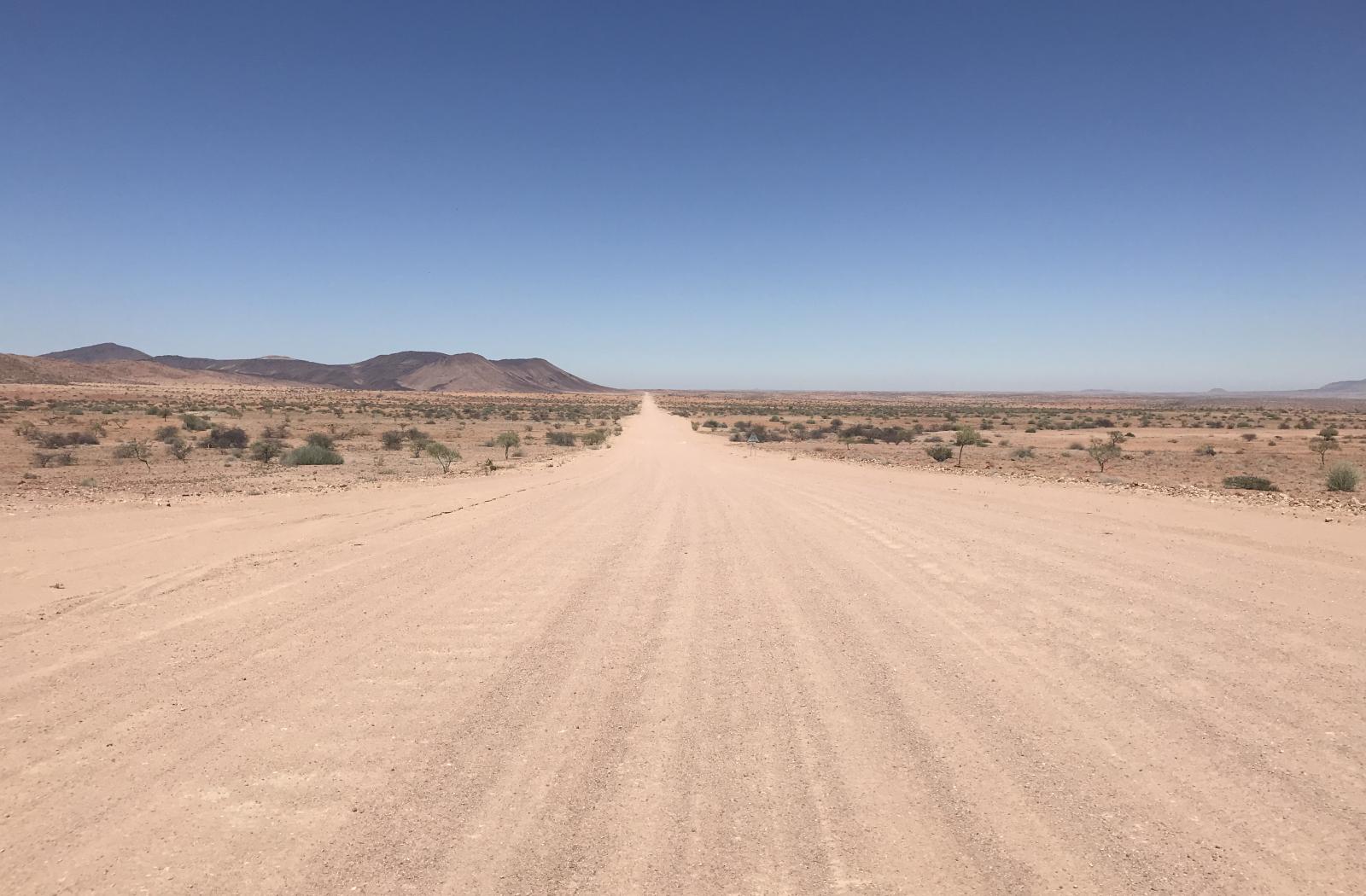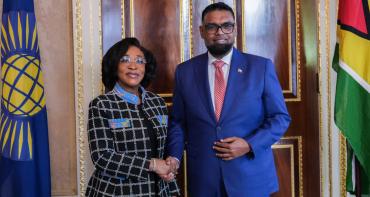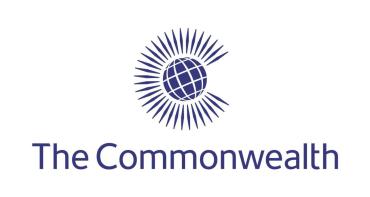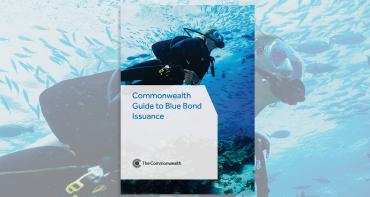The Commonwealth Secretariat’s Climate Finance Access Hub (CCFAH) deployed National Climate Finance Adviser (CNCFA), Carol Mwape, in May 2021 to facilitate improved access by Namibia to climate finance to meet their priority needs in securing sustainable development. The support is aimed at creating an enabling environment conducive for accessing available climate funds both locally and internationally, and to effectively utilize it for supporting sustainable development efforts.

Country context
With its name derived from the Namib desert, Namibia is coined “Land of the Brave” by its people and covers 825,000 square kilometres with a population of nearly 2.6 million. Namibia is categorised as an arid country owing to its low average precipitation of 350mm per year. Due to the influence of its natural environment, Namibia experiences highly variable and extreme climatic conditions including droughts and floods.
Climate change complicates socio-economic development due to its negative impacts on already fragile ecosystems and natural resources. This places Namibia amongst countries that are most vulnerable to climate change. Boasting a 1,570 km coastline in the west, Namibia is harnessing activities in the blue economy including fisheries, mining, marine transport and logistics, water desalination and tourism. The country is currently pursuing green hydrogen production from coastal wind, solar power and tidal energy aiming for the potential for mitigation of greenhouse gas emissions from the energy sector and boosting economic growth.
The issue
Namibia has submitted an ambitious Nationally Determined Contribution requiring over US$ 18 billion for its implementation from 2015 to 2030. Financial demands remain high for Namibia’s ongoing climate change efforts. While domestic resources are mobilised from domestic sources, most measures need assistance from developed countries and multilateral funding windows.
However, the technical capacity needed to develop quality project concept notes and the involvement of private sector remains low and affecting the rate and scale of access to climate finance. Overriding these barriers is that as of 2023, Namibia only had one direct access entity accredited to the Green Climate Fund for grants at micro-scale category (max. US$ 10 million).
The response
The Commonwealth Secretariat’s Climate Finance Access Hub (CCFAH) deployed National Climate Finance Adviser (CNCFA), Carol Mwape in May 2021 to facilitate improved access by Namibia to climate finance to meet their priority needs in securing sustainable development. The support is aimed at creating an enabling environment conducive for accessing available climate funds both locally and internationally, and to effectively utilize it for supporting sustainable development efforts.
Having reviewed the country circumstances, Namibia’s CNCFA identified the need to initiate a capacity-building process that would ensure retention of nationals with skills and knowledge of concept note development. Support to nominated entities for accreditation to the GCF was also identified as a priority because having multiple accredited entities entails the country can access finance from various sources, large-scale projects and through a variety of instruments and in the long run builds capacity of local institutions to manage global funds. Green hydrogen development also requires that Namibia puts in place policies, regulations and strategies in key sectors to support investments.
The readiness program under the GCF was therefore identified as a window that could avail Namibia the opportunity to address these identified gaps.
Accomplishment
Since deployment in May 2021, the CNCFA has supported Namibia in addressing the identified barriers accessing climate finance including: conducting climate finance training sessions that culminated into establishment of a climate finance technical working group. This multi-sectoral team of local stakeholders ensures capacity retention in the country for undertaking concept note development. The CNCFA has, since 2021 to date assisted Namibia in securing US$ 1,274,618 in readiness funding from the GCF. The projects include:
- Green, Resilient Recovery Rapid Readiness Support that was launched by the GCF in response to the COVID-19 pandemic (NAM-RS004) valued at US$ 300,000 was approved in December 2021. This project is assisting Namibia in undertaking feasibility studies in three sites identified for Green Hydrogen production in Namibia.
- Developing key legislation, regulation, policies, and concept notes for climate action (NAM-RS005) valued at US$ 648,076 was approved in November 2022. It aims to address policy and regulatory gaps for enabling green hydrogen development in Namibia.
- Support for accreditation of direct access entities in Namibia (NAM-RS006) valued at US$ 326,542 was approved by GCF in March 2023 This readiness project will strengthen capacities of nominated entities and accelerate their accreditation process. In addition to this funding, the Adviser has secured over US$ 2,600,000 funding from other sources including the Government of Japan, the Climate Investment Funds, the SDG Partnerships and the Bio-Bridge Initiative under the UNCBD. This demonstrates the key role of the Adviser in mobilizing finance from a variety of sources.
Success factors
The following lessons are drawn from factors that influenced successful readiness proposals:
- Understanding the immediate and urgent needs to unlock access to finance can never be over-emphasised. The window for implementation of NDCs to meet the timelines for reducing emissions as guided by the IPCC is closing and Namibia is set to speed up access to finance by addressing strategic barriers.
- Country ownership achieved through consistent stakeholder engagement in identifying and developing priority projects is key. It not only makes required information readily available for quality proposals but presents a platform for hands-on knowledge transfer. In all successful readiness proposals, the Adviser reviewed GCF comments with the respective beneficiaries allowing them to understand the rationale for providing quality inputs.
- Involvement of the delivery partner from project identification and throughout the development process is very important for understanding the context and scope of the project that they will ultimately implement.
- Committing to a short duration for addressing GCF review comments entails that the transaction time is reduced and facilitates timely decisions. This factor is also influenced by the Advisers engagement with the office of the NDA to ensure timely submission of revised proposals.
- The GCF has a dedicated regional readiness technical team (Africa) to support countries in the process of developing proposals. This technical assistance is readily at the disposal of countries and Namibia has benefited from the support of this team which reduced the transaction time between reviews as clarification on information gaps is demand-driven and was provided in a timely manner.
Outlook
The readiness to support the accreditation of entities presents a game changer for Namibia in increasing access to finance. Three of the entities lined up for accreditation are banks namely: Bank Windhoek, Agriculture Bank of Namibia and Development Bank of Namibia. Once accredited, these banks will cater for private sector in financing small to medium-scale projects above US$ 10 million and use a variety of funding instruments such as blended finance, concessional loans and reimbursable grants. This will particularly accelerate the implementation of projects in the energy sector where the private sector is actively engaged but lacking finance.
With targeted readiness addressed, Namibia is looking towards submitting a Multi-Year Readiness proposal up to US$ 3 million to address an array of readiness needs arising from the updated NDC of 2021 and which got revised in 2022.
Learn more about the work of the Commonwealth Climate Finance Access Hub
Media contact
- Josephine Latu-Sanft Senior Communications Officer, Communications Division, Commonwealth Secretariat
- +44 20 7747 6476 | E-mail



